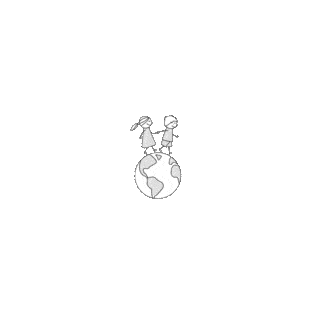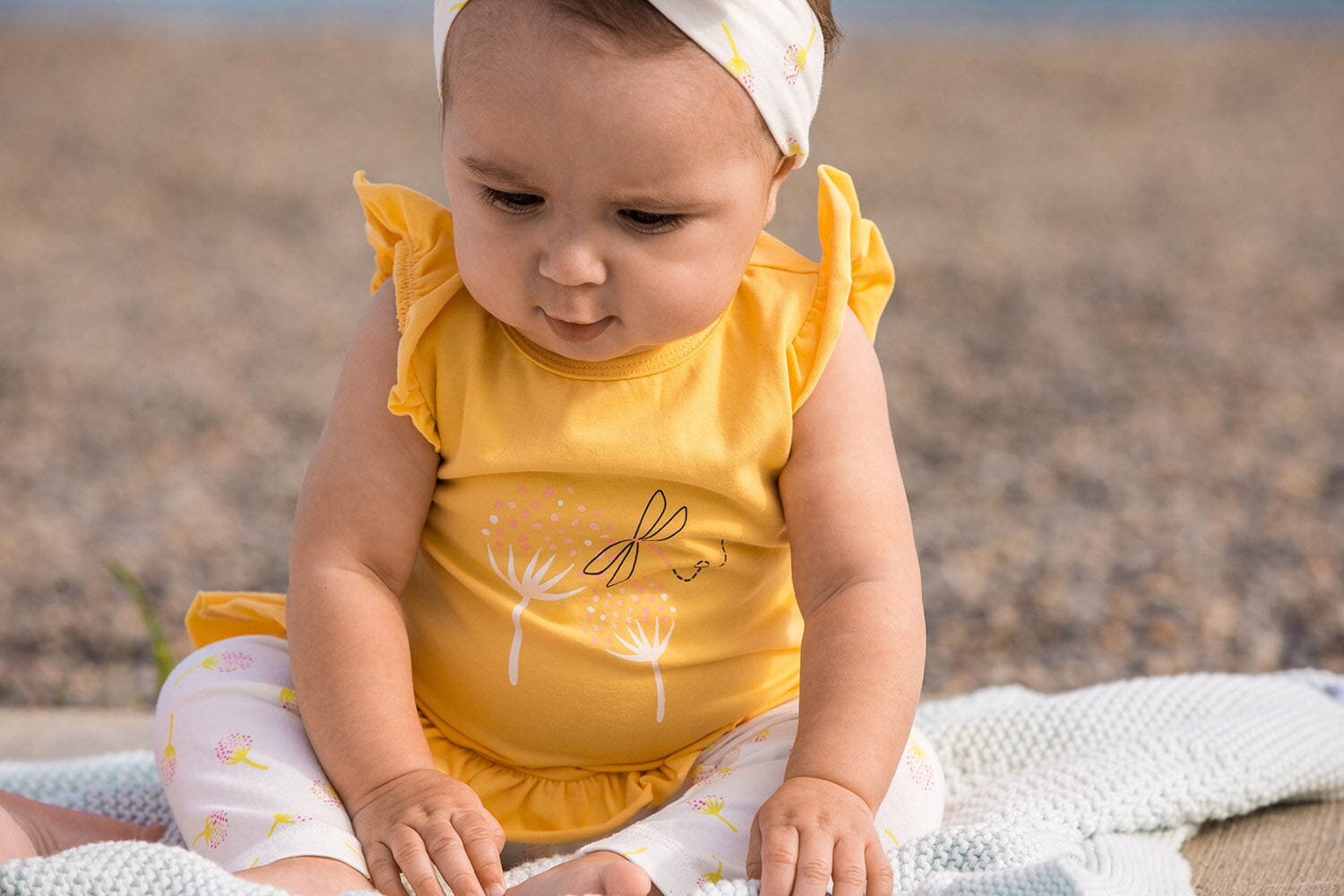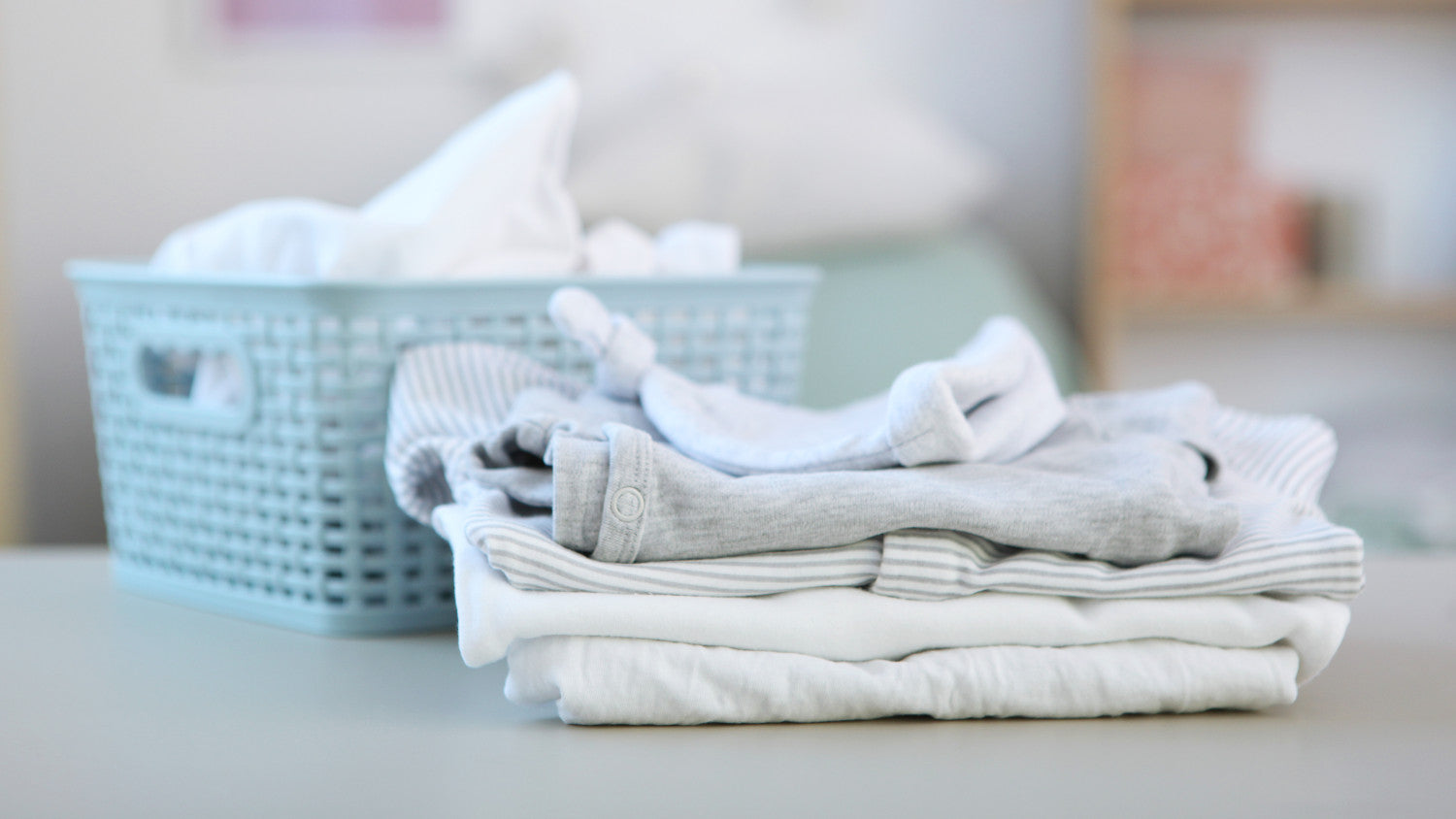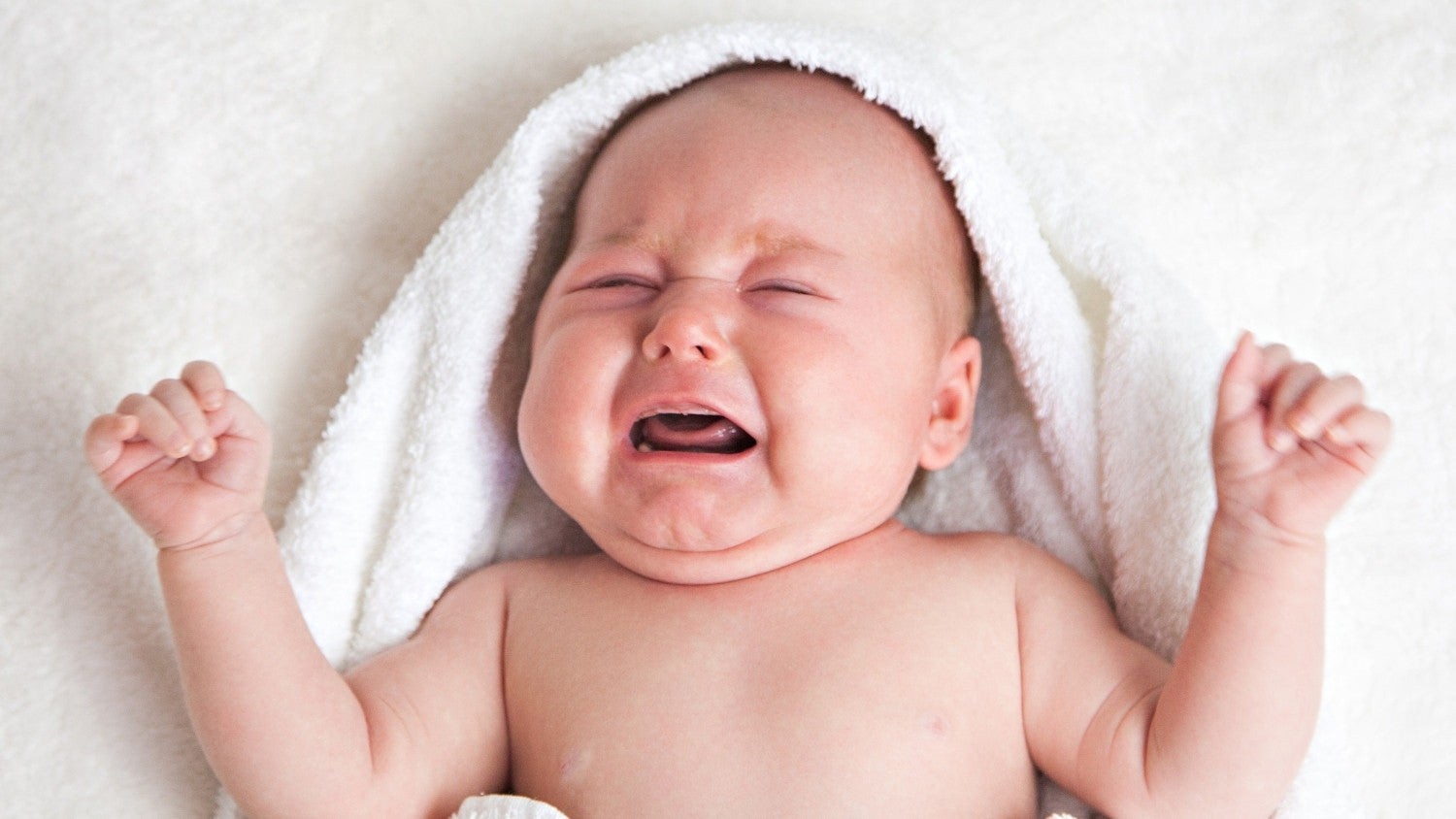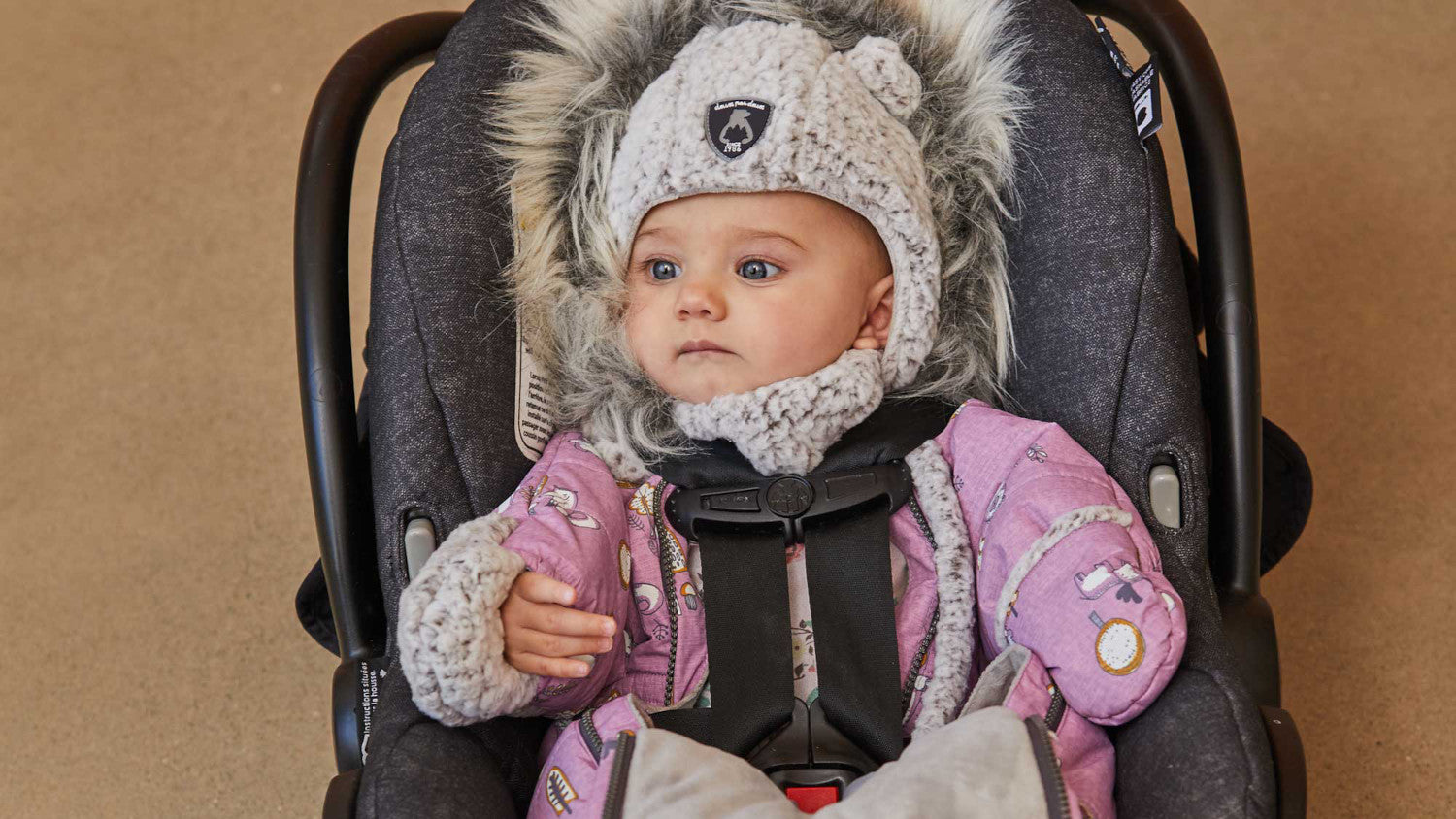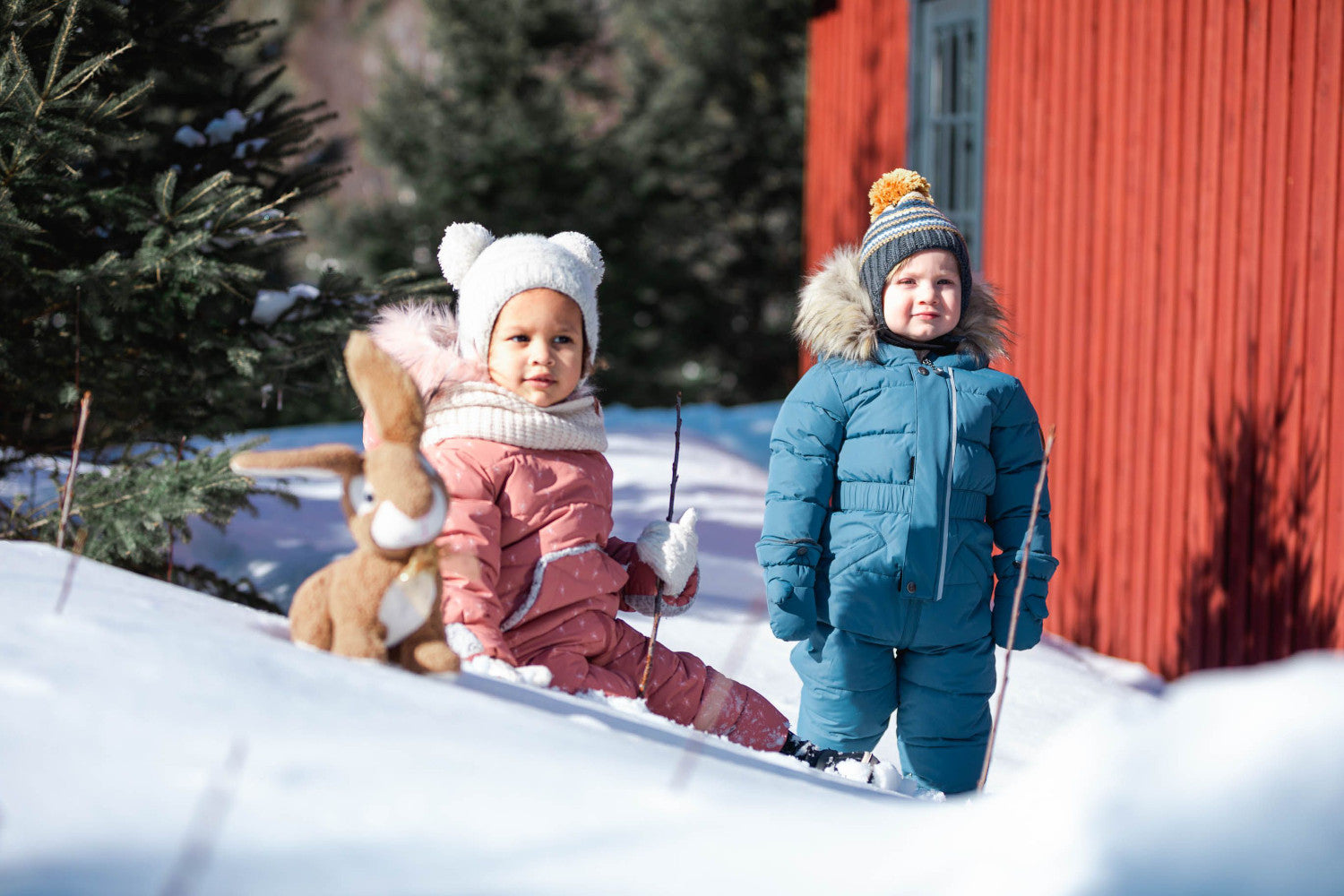
High body temperature, crying, pale complexion, even difficulty breathing... Your little one doesn't seem to be in the best of shape. They may have a fever, which is common and often benign in young children.
A fever — in babies as in adults — is the body’s completely natural defensive reaction. The aim of this reaction is to protect the body against the various microbes and viruses that seek to invade us.
But if it lasts too long, it may be a sign of a more serious situation. We tell you how to react and when to seek medical advice in the event of your baby having a fever.
Baby Fever: Definition and Common Symptoms
First of all, a fever is not an illness, but the body's reaction to an illness or shock. It's caused by an increase in body temperature, which helps the immune system fight off a virus or bacteria.
Fever is, therefore, a sign that your child's body is working properly. Think of it as an ally, helping your baby to get rid of undesirables.
For a baby to be considered "feverish", their temperature must be above 38°C without intense physical activity, when normally covered and in a temperate environment.
Remember: a baby's normal temperature is between 36.5 and 38°C.
When feverish, a baby may have one or more of the following symptoms:
- Fatigue
- Grumpier temperament
- Decreased appetite
- Slight headache
Why Does My Baby Have a Fever?
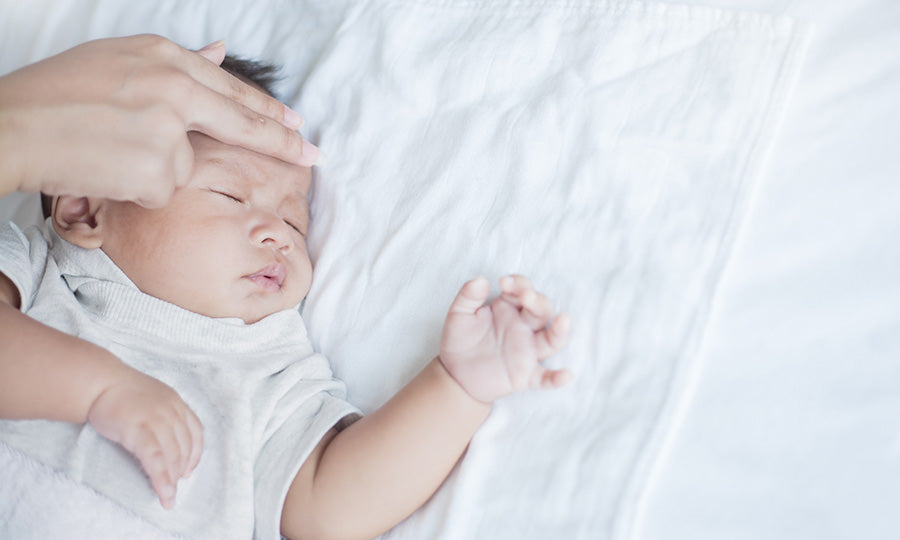
In most cases, fever is the result of an infection (viral or bacterial) that presents no real risk.
However, it can also be caused by other factors:
- Teething (related to when the tooth breaks through the gum — usually lasts no more than 1 or 2 days);
- Sunstroke/heatstroke
- Vaccination. Note that fever associated with vaccination is increasingly rare in babies, and concerns only a small number of vaccines. For example, the measles vaccine causes fever in less than 15% of infants 5-12 days after vaccination
How to Take Your Baby’s Temperature
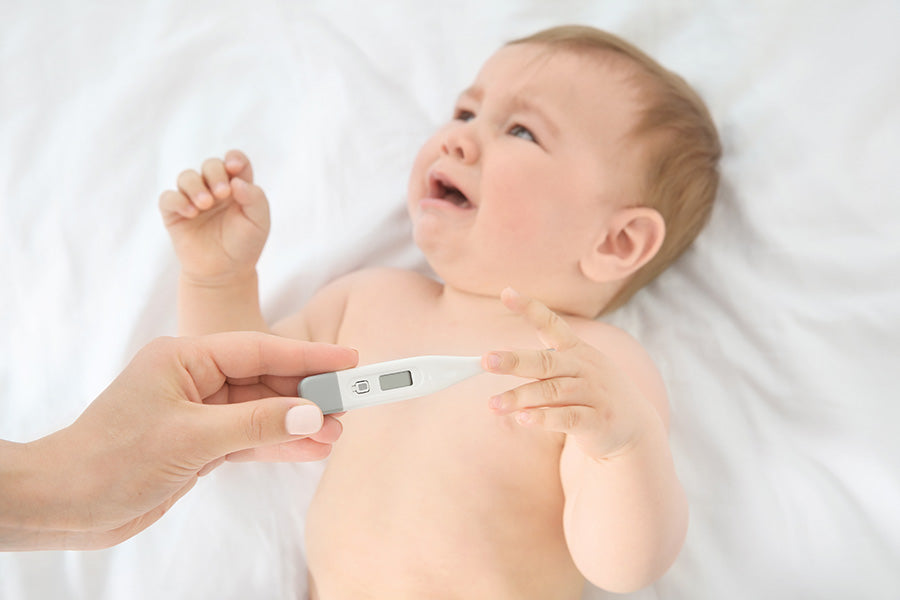
When Should I Take Your Baby’s Temperature?
First of all, there's no need to take your child's temperature if they don’t look sick to you.
On the other hand, if your child's complexion is pale or flushed, if they cry a lot, or if they feel hot to the touch, get your thermometer out. An unbreakable plastic digital thermometer is preferable to a mercury thermometer as if it breaks, your child may be exposed to toxic substances.
How Do I Take My Baby’s Temperature?

There are several ways to take a baby's temperature. Mouth temperature-taking is less accurate and is generally reserved for children aged 2 and over.
For babies under 2, axillary (underarm) or rectal temperature-taking is preferred, as these methods are more accurate.
Mouth temperature
If you choose to take your baby's temperature by mouth, add 1°C to the temperature reading to approximate the actual body temperature.
To do this, gently slide the tip of the thermometer into your baby's mouth. Try to get them to their mouth for a more accurate reading. Wait a few seconds to make sure the thermometer reading is correct.
Axillary temperature
Underarm (or axillary) temperature measurement is a practical, gentle method for babies and very young children. It is, however, less accurate than rectal temperature measurement. Here again, add 1°C to the value obtained for a more reliable result.
To take an axillary temperature reading, slide the thermometer tip under your baby's folded arm. Wait a few moments for the thermometer to display the correct value.
Rectal temperature
Rectal temperature taking is a rather unpleasant procedure for your little one, but it's also the most reliable method for a baby under 2 years of age.
To take a baby's rectal temperature:
- Wash hands
- Clean the thermometer with soap and rinse thoroughly
- Coat the tip of the thermometer with petroleum jelly to make it more comfortable
- Lay baby on their back with knees bent
- Gently insert the tip of the thermometer into the rectum, up to about 2 cm
- Wait for the thermometer to beep before removing it
- Record the temperature, then wash the thermometer thoroughly
When Should You Seek Medical Advice if Your Baby Has a Fever?

Before 6 Months, Depending on Age
First, you should immediately take a feverish child to your doctor or to the emergency room if they are under 3 months old.
For a baby aged 3 to 5 months, prompt medical attention is also recommended but not as urgent. Generally speaking, if the fever persists for more than 4 or 5 days, a consultation will be necessary.
Beyond 6 Months, in Certain Specific Cases
If your baby is 6 months or older, a consultation will be necessary depending on the duration of the fever and any other symptoms. Take your child to the doctor or emergency room in the following cases:
- If the fever persists for more than 72 hours (3 days)
- A sudden change in behaviour. For example, if they become very quiet and no longer want to play for a baby who is usually active, or if they become short-tempered for a child who is normally gentle
- If they’re sleepy or unresponsive
- Pale, grayish, or reddish complexion, or bluish lips
- If they vomit profusely and/or have diarrhea
- If they have had one or more febrile convulsions, characterized by jerky movements of the legs and arms
- Difficulty breathing
- If they present other symptoms that you find worrying
Is a Rise in Temperature Always Serious?
To determine if and when you should consult your doctor about a baby with a fever, rely on your baby's temperature but also pay close attention to the baby's behaviour.
Contrary to the generally accepted (and false) idea that the higher the temperature, the more serious it is, the baby's behaviour tells you more about the seriousness of the situation.
For example, in the case of roseola (a viral infection), a child's body temperature can rise to 40.5°C. Yet, this is a childhood illness that presents no real danger.
However, any change in behavior that appears unusual to parents should be taken seriously. And let's repeat: that is the case even if the baby's temperature doesn't exceed 38°C.
What Should I Do If My Baby Has a Fever?
Remember: fever is an ally in helping your child's body rid itself of viruses and bacteria. The best thing to do in the event of a fever, apart from consulting a health professional, is to gently support this natural process.
Rather than preventing the fever, the key is to help your baby feel better by taking small steps to relieve the sudden rise in body temperature.
Tips to Relieve Baby’s Fever
First, remove a few layers of baby's clothing, depending on the ambient temperature, baby's reactions, and fever level.
Make sure that the room temperature is between 19 and 21°C.
If necessary, rub a damp glove over your little one's face, neck, and body to cool them down.
You can also give them a bath. Beware, however, the positive effect of a bath is relatively limited and can actually worsen the child's state of discomfort. If the temperature is too cold, your baby may even go into convulsions. So make sure that the water is at -2°C below your child's temperature and no colder.
Finally, a small drop of peppermint essential oil diluted in water and applied to the top of the forehead can also help relieve your baby's discomfort.
What Medicines are Needed to Reduce Fever?
If your child has a high fever or is really uncomfortable, you can also give them medicine:
- Paracetamol, taken orally as a syrup, will soothe the unpleasant effects of fever, such as headaches.
- Ibuprofen can also provide some relief. Ideally, this medication should be approved by a doctor as it has several risks. It should not be given to children under 3 months of age or those suffering from gastroenteritis, influenza, or chickenpox.
Aspirin, on the other hand, should be avoided as it may present a risk for young children.
**********
You now know what to do and when to seek medical advice in the event of a fever in your baby. Remember: the best way to prevent a fever is always to be well covered up with appropriate winter clothing and a warm sweater!
And when in doubt, never hesitate to consult a health professional!
